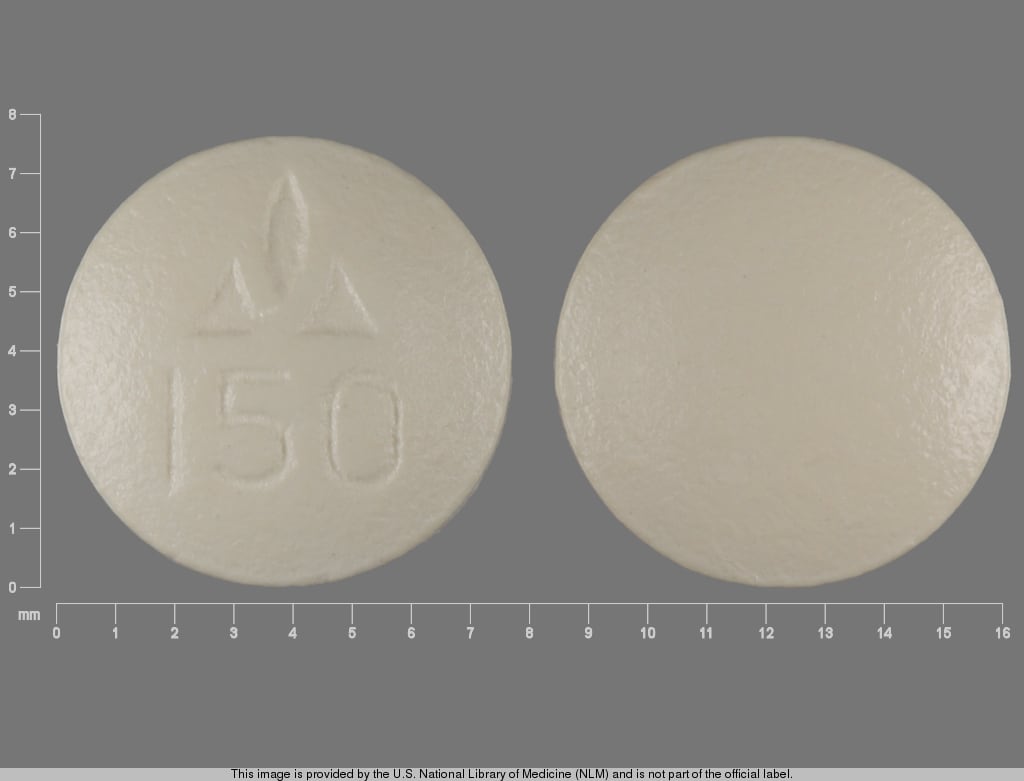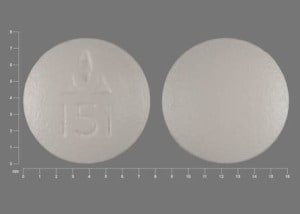Vesicare
Generic name: solifenacin
Brand names: VESIcare, VESIcare LS
Drug class: Urinary antispasmodics
Medically reviewed by A Ras MD.
What is Vesicare?
Vesicare is a prescription medicine for adults used to treat the following symptoms due to a condition called overactive bladder Urge urinary incontinence: a strong need to urinate with leaking or wetting accidents, Urgency: a strong need to urinate right away, Frequency: urinating often
It is not known if Vesicare is safe and effective in children.
Description
VESIcare® (solifenacin succinate) is a muscarinic receptor antagonist. Chemically, solifenacin succinate is butanedioic acid, compounded with (1S)-(3R)-1-azabicyclo[2.2.2]oct-3-yl 3,4-dihydro-1-phenyl-2(1H)iso-quinolinecarboxylate (1:1) having an empirical formula of C23H26N2O2•C4H6O4, and a molecular weight of 480.55. The structural formula of solifenacin succinate is:
 |
Solifenacin succinate is a white to pale-yellowish-white crystal or crystalline powder. It is freely soluble at room temperature in water, glacial acetic acid, dimethyl sulfoxide, and methanol. Each VESIcare tablet contains 5 or 10 mg of solifenacin succinate and is formulated for oral administration. In addition to the active ingredient solifenacin succinate, each VESIcare tablet also contains the following inert ingredients: lactose monohydrate, corn starch, hypromellose 2910, magnesium stearate, talc, polyethylene glycol 8000 and titanium dioxide with yellow ferric oxide (5 mg VESIcare tablet) or red ferric oxide (10 mg VESIcare tablet).
Who should not take Vesicare?
Do not take Vesicare if you:
- are not able to empty your bladder (urinary retention)
- have delayed or slow emptying of your stomach (gastric retention)
- have an eye problem called “uncontrolled narrow-angle glaucoma”
- are allergic to solifenacin succinate or any of the ingredients in Vesicare. See the end of this leaflet for a complete list of ingredients.
What should I tell my healthcare provider before taking Vesicare?
Before you take Vesicare, tell your doctor if you:
- have any stomach or intestinal problems or problems with constipation
- have trouble emptying your bladder or you have a weak urine stream
- have an eye problem called “narrow angle glaucoma”
- have liver problems
- have kidney problems
- have a rare heart problem called “QT prolongation”
- are pregnant or plan to become pregnant. It is not known if Vesicare will harm your unborn baby. Talk to your doctor if you are pregnant or plan to become pregnant.
- are breastfeeding or plan to breastfeed. It is not known if Vesicare passes into your breast milk. You and your doctor should decide if you will take Vesicare or breastfeed. You should not do both.
Tell your doctor about all the medicines you take, including prescription and nonprescription medicines, vitamins, and herbal supplements. Vesicare may affect the way other medicines work, and other medicines may affect how Vesicare works.
How should I take Vesicare?
- Take Vesicare exactly as your doctor tells you to take it.
- You should take 1 Vesicare tablet 1 time a day.
- You should take Vesicare with water and swallow the tablet whole.
- You can take Vesicare with or without food.
- If you miss a dose of Vesicare, begin taking Vesicare again the next day. Do not take 2 doses of Vesicare the same day.
- If you take too much Vesicare, call your doctor or go to the nearest hospital emergency room right away.
What should I avoid while taking Vesicare?
Vesicare can cause blurred vision or drowsiness. Do not drive or operate heavy machinery until you know how Vesicare affects you.
What are the possible side effects of Vesicare?
Vesicare may cause serious side effects including:
- Serious allergic reaction. Stop taking Vesicare and get medical help right away if you have:
- hives, skin rash or swelling
- severe itching
- swelling of your face, mouth or tongue
- trouble breathing
The most common side effects of Vesicare include:
- dry mouth
- constipation. Call your doctor if you get severe stomach area (abdominal) pain or become constipated for 3 or more days.
- urinary tract infection
- blurred vision
- heat exhaustion or heat-stroke. This can happen when Vesicare is used in hot environments. Symptoms may include:
Tell your doctor if you have any side effect that bothers you or that does not go away.
These are not all the possible side effects of Vesicare. For more information, ask your doctor or pharmacist.
Call your doctor for medical advice about side effects.
You may report side effects to the FDA at 1-800-FDA-1088.
Vesicare Images
-

VESIcare 5 mg -

VESIcare 10 mg
General information about the safe and effective use of Vesicare
Medicines are sometimes prescribed for purposes other than those listed in Patient Information leaflets. Do not use Vesicare for a condition for which it was not prescribed. Do not give Vesicare to other people, even if they have the same symptoms you have. It may harm them.
This guide summarizes the most important information about Vesicare. If you would like more information, talk with your doctor. You can ask your doctor or pharmacist for information about Vesicare that is written for health professionals.
How should I store Vesicare?
- Store Vesicare between 59°F to 86°F (15°C to 30°C). Keep the bottle closed.
- Safely throw away medicine that is out of date or no longer needed.
Keep Vesicare and all medicines out of the reach of children.
What are the ingredients in Vesicare?
Active ingredient: solifenacin succinate
Inactive ingredients: lactose monohydrate, corn starch, hypromellose 2910, magnesium stearate, talc, polyethylene glycol 8000 and titanium dioxide with yellow ferric oxide (5mg Vesicare tablet) or red ferric oxide (10mg Vesicare tablet)
SRC: NLM .
